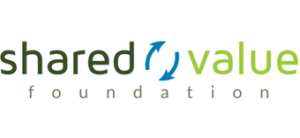- +31302531363
- info@sharedvaluefoundation.com
Social impact study on housing and complementary projects in five countries
- Home
- Social impact study on housing and complementary projects in five countries
THE PROJECT
During times of natural disasters and economic uncertainties exacerbated by the COVID-19 pandemic and fuel price hikes, the poorest communities around the world are the ones feeling the pinch most – from loss of income to food insecurity. In several communities in the Global South, the multiple effects of volatile political, economic, and social situations are mostly evident. The cycle of poverty continues.
Helping people out of poverty begins with a roof above their heads. It provides relief especially for populations without the basic need of shelter. However, in the context of development, to break the cycle of poverty, other needs should be also addressed by providing sustainable and lasting solutions. Breaking the chain of poverty is more than a simple lack of resources.
In 2022, Shared Value Foundation, in cooperation with Nedworc Foundation, and upon the request of Stichting HomePlan, a Dutch NGO dedicated to building houses for those who need the most in the Global South, assessed the social impact of housing as well as complementary projects implemented in five countries: Guatemala, Haiti, South Africa, Zimbabwe and eSwatini. The NGO has already built more than 4,200 houses in several communities that are considered the most vulnerable in countries.
The fieldwork was undertaken by our network of experts in Southern Africa (eSwatini, South Africa and Zimbabwe), Guatemala, and Haiti between April and October 2022.
As a background, in 2016 HomePlan first tapped SVF to study the social impact of its housing projects in six locations – South Africa, Zimbabwe, eSwatini, Haiti, Nicaragua, and Mexico. In the study, most beneficiaries interviewed considered the houses a permanent solution and remained a focal point for improving their living situation. It was recommended that for a successful development, beneficiaries and communities need more than safe and secure housing.
RESULTS
The result of the 2022 study was a follow-up of the 2016 research, where HomePlan improved on many aspects of housing and other provisions (such as computer schools, agricultural and skills training, water provisions, creche and community-run businesses, community-empowerment training) for beneficiaries and communities based on the recommendations.
Through the lens of locals, and to better understand the local context and realities of the communities, the impact study in 2022 also assessed the monitoring and evaluation (M&E) practices of the organisation and its partners to provide a more synthesized and universal M&E that will guide future project evaluations. The project resulted in one main synthesis report and three specific country or regional reports, focusing on the following key criteria:
- The current state of housing and housing conditions.
- The impact of housing projects on direct and indirect beneficiaries.
- The impact of complementary projects such as agriculture, computer schools, OVC projects and skills training in the communities of the projects.
- The current methodologies and approaches to M&E carried out locally and proposing a sustainable mechanism in the different projects and locations.
The report consisted of the contextual background broken down into the regional context and country contexts, followed by the research background. We provided details of the HomePlan local structures (partner organisations) and findings on the state of the houses. Based on the impact study, we set out recommendations specific to each country and gave a detailed insight on monitoring and evaluation.
In conclusion, the support that HomePlan offers to families in the form of the construction of houses and complementary training projects, access to basic services, (organic) agriculture and skills development programs, is not only aimed at covering unsatisfied basic needs to overcome poverty. It is aimed at achieving greater impacts: to improve the means of life available to families that go beyond a merely economic vision, but to a certain extent covering other assets.
“By satisfying their basic security needs: housing, access to services and property, the families express their motivation to work on addressing other types of demands: food, employment, productive alternatives, but also to improve their own homes, reflecting greater aspirations for comfort, and privacy,” wrote Roxana Dulon who did research in the communities of Guatemala.
As soon as people have their most basic needs covered, they tend to motivate themselves to achieve higher needs, but in some cases, these needs do not always respond to a hierarchical logic. In fact, motivations to satisfy basic and higher needs can coexist. Thus, while seeking to satisfy the need to have a home, one can also aspire to have one’s own home and to be empowered as a person.

